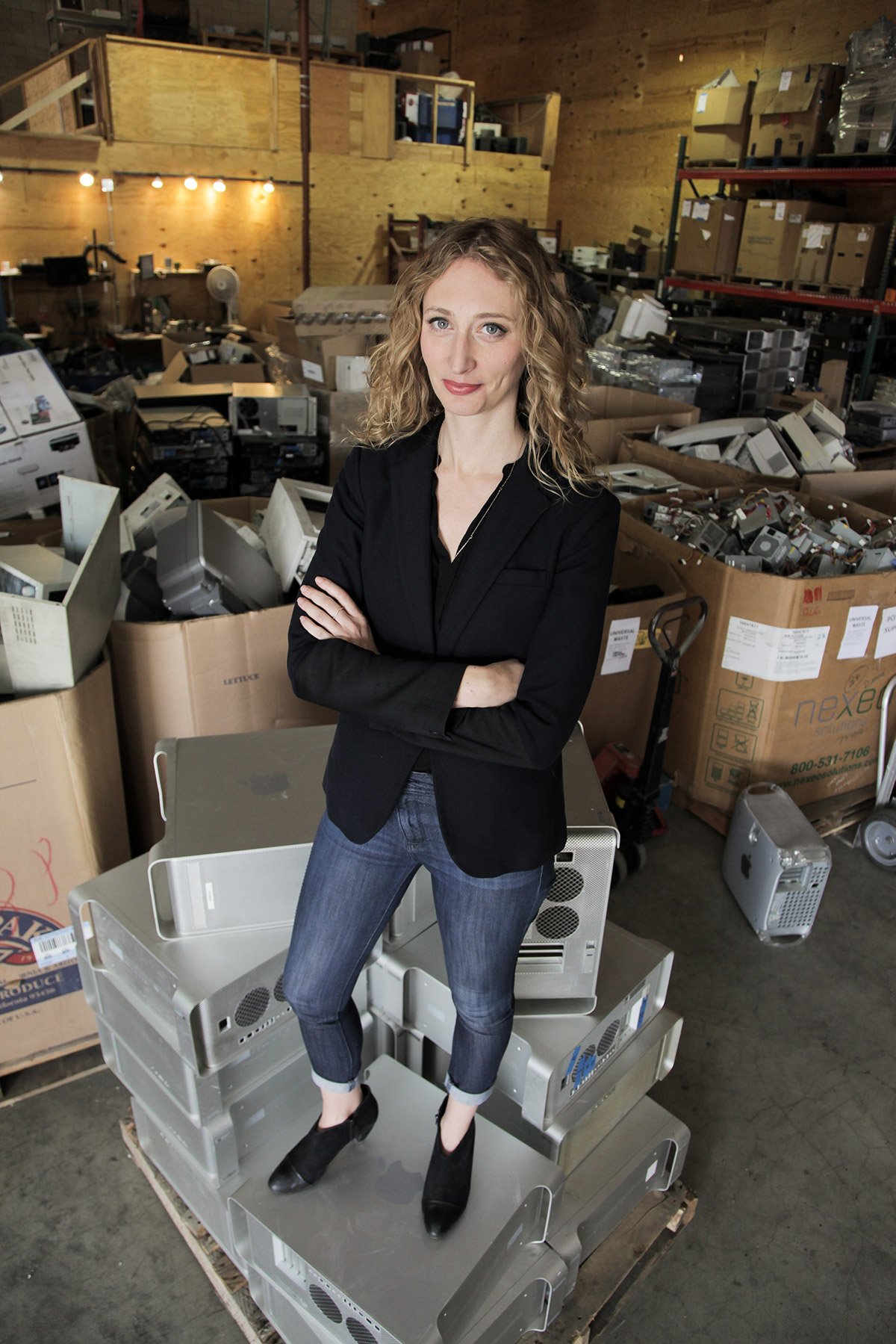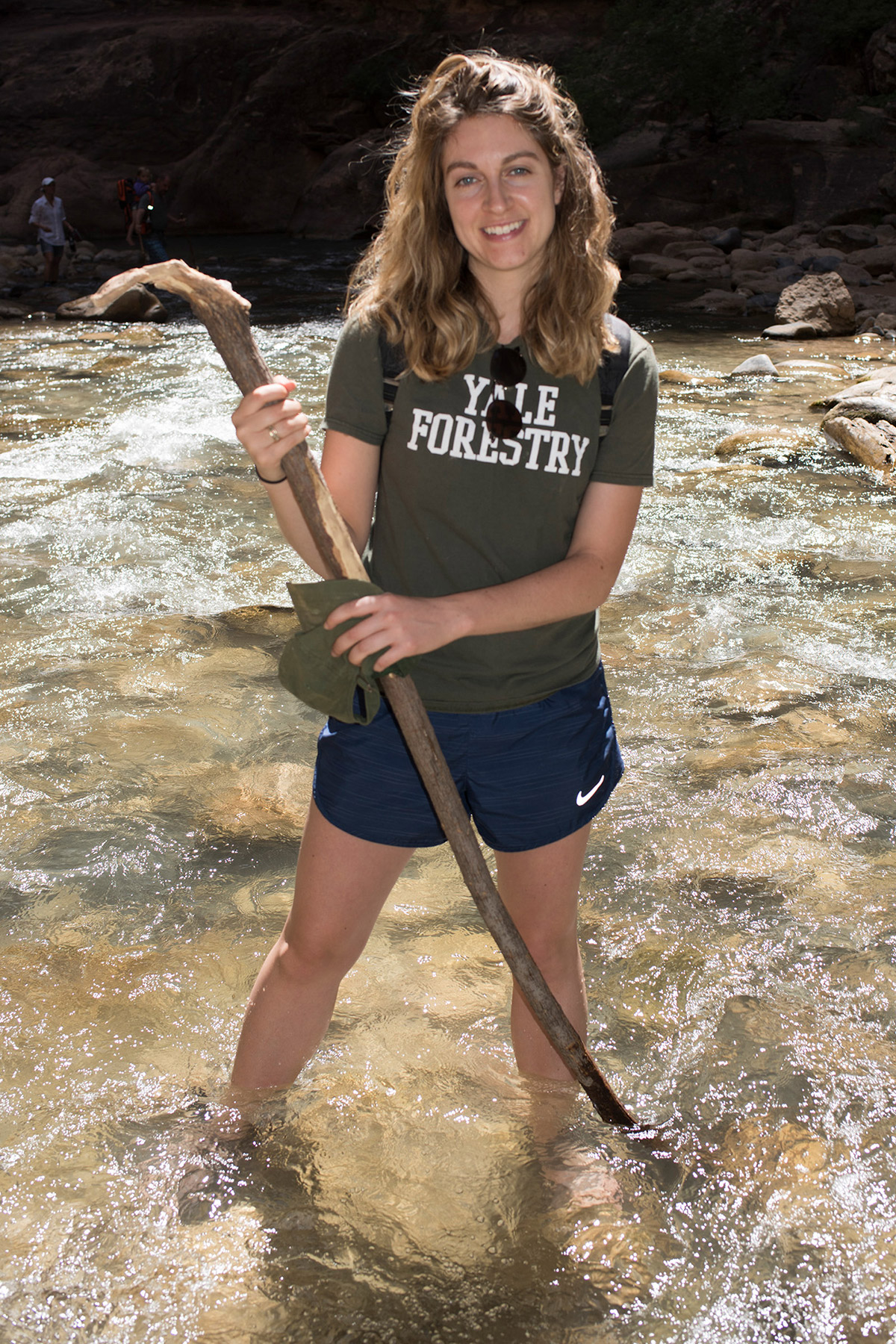AAVC SpotlightEarth Month Focus: Kabira Stokes ’99 and Lydia Mendoza ’11
AAVC SpotlightEarth Month Focus: Kabira Stokes ’99 and Lydia Mendoza ’11
This year, the alumnae/i association, AAVC, turns 150. Throughout 2021, the College will be celebrating this anniversary by highlighting a few of Vassar’s most notable alumnae/i in architecture, arts, business, education, entertainment, healthcare, humanitarian efforts, law, social justice, and technology. For Earth Month, we focus on two alumnae who have dedicated themselves to bettering the planet’s environment while creating opportunity for all.
Kabira Stokes ’99

Occupation: CEO of Retrievr, an on-demand recycling service for electronics and clothing
Calling: Building a circular, green economy to replace a dirty, grey economy that has left too many people out
Accomplishments: Working as a field representative for Los Angeles City Council President (now Mayor) Eric Garcetti, Kabira Stokes became galvanized by the epidemic of gang violence claiming the lives of the city’s young people of color. The more she examined the problem, the more she realized how poverty, lack of opportunity, and the racial disparities regarding who gets sent to prison were to blame. Creating jobs for formerly incarcerated people, she believed, would be the best way to help. “I wanted to prove that you could build a profitable business hiring folks coming out of the criminal-legal system,” she recalls. In 2011, after earning a master’s degree in public policy from the University of Southern California, she started Isidore Electronics Recycling, a company that recovers value from both the people and things that society has habitually thrown away. The company was eventually acquired by Homeboy Industries, a nonprofit that provides a multitude of services to people formerly involved in gangs, and renamed Homeboy Recycling. By the time Kabira left Homeboy in 2020, the company had processed more than 2.5 million pounds of electronics and had employed about 75 formerly incarcerated people.
Stokes now serves as CEO for Retrievr, a new recycling company that collects unwanted electronics and clothing on demand. Retrievr currently has contracts with over 80 municipalities in the Philadelphia area to promote the pickup service, and will soon expand into other states. “With Isidore and Homeboy, we were mainly a B-to-B company, servicing businesses and their needs around electronics recycling and data security, but I always knew that we were leaving the residential piece on the table,” Stokes explains. “The recycling rates for both electronics and clothing are stubbornly low, and I always thought that the only way we’re going to move them is if we go to people’s doors. That’s exactly what Retrievr does.” The problem is urgent, she says, because “over 70 percent of the toxins in landfills are from electronics, even though electronics are only about 4 percent of what’s in landfills. This is not where these things belong.” As for clothing, the issue is more about the tremendous amount of natural resources used and pollution created in production. “The fashion industry alone is responsible for 10 percent of global greenhouse gas emissions,” Stokes says. “We have to be reclaiming these materials and reusing them instead of making everything from virgin material.”
Looking Back: Already a committed conservationist when she entered Vassar from the suburbs of Philadelphia, Stokes believes the campus arboretum only reinforced her appreciation for the natural world. “The physical beauty of that place just nabbed me in a way that no other place did,” the former sociology major recalls. “I think I felt really held by that while I was there. I remember once staring at Sunset Lake in the pouring rain, just staring at that scene and just being filled up by it.”
Looking Forward: Stokes and Retrievr will soon launch a recycling program in Denver with the help of five electronics brands, and are seeking additional corporate partners who would like to offer their customers a more responsible way of disposing of items that are no longer useful. “We’re looking to be in four states by the end of 2021,” Stokes says. “The long-term goal is to make the recycling of electronics and textiles as ubiquitous as the recycling of papers, bottles, and cans.”
Lydia Mendoza ’11

Occupation: Conservation Lead at the Columbia Land Trust, Oregon Coast Region
Calling: Mitigating climate change while creating a more inclusive and equitable conservation movement.
Accomplishments: Since earning a master’s degree in forestry at the Yale School of the Environment in 2018, Lydia Mendoza has been working to protect the vast forests of the Pacific Northwest as a means of mitigating climate change and benefitting diverse communities. “Western forests have such incredible power to sequester carbon,” she says. “There’s a lot of potential there.” As Conservation Lead at the Columbia Land Trust, a nonprofit that protects land along the Columbia River in Oregon and Washington, Mendoza is in charge of land acquisitions and conservation planning for the Oregon coast region. This entails identifying parcels to preserve through purchases or conservation easements, raising funds, and handling the legal and real estate transactions. “I’m working on thousand-acre acquisitions from timber companies, but I’ve also done five-acre acquisitions to help families realize a vision of seeing their land conserved,” she says. “I love both kinds of projects.”
Mendoza stresses the importance of increasing diversity, equity, and inclusion in the conservation movement while recognizing its history of exclusion and displacement. “I think most environmental organizations are grappling with the lack of diversity in our organizations, the exclusionary origins of the movement, and inequities in our system of land ownership in the U.S.,” she says. “So while I believe in the work that I do, I also recognize that the movement has a long way to go. I’m grateful to work for an organization that gives me space to explore these issues and pursue non-traditional land conservation projects with a focus on equity.”
Looking Back: A biology major who grew up in the Columbus Ohio area, Mendoza did not have an environmental bent when she entered college. “It all started at Vassar,” she says. “I was not an outdoorsy person before college, I never went for hikes or anything.” That changed when she befriended a fellow student from Montana. “She got me into running at the Vassar Farm and I fell in love with the outdoors,” Mendoza recalls. The two went on a road trip junior year that was life-changing for the future environmentalist. “We drove from Poughkeepsie to Montana. It was the first time I’d ever been west, the first time I had ever camped—any of that,” she says. “I was just blown away.” As she continued to learn backpacking skills over the years, Mendoza found her confidence increasing. “The outdoors is where I feel calm and also where I’ve learned to be an independent, stronger woman.”
Looking Forward: Mendoza is currently working on a project to conserve an entire 90,00-acre watershed in the state of Washington, which would include a new nature preserve of 6,000 acres. “We have a long way to go with developing funding and working with the landowners and community, but conserving land at this watershed scale would make a tremendous impact,” Mendoza says. “If this project is successful, it will be really exciting.”
—Kimberly Schaye